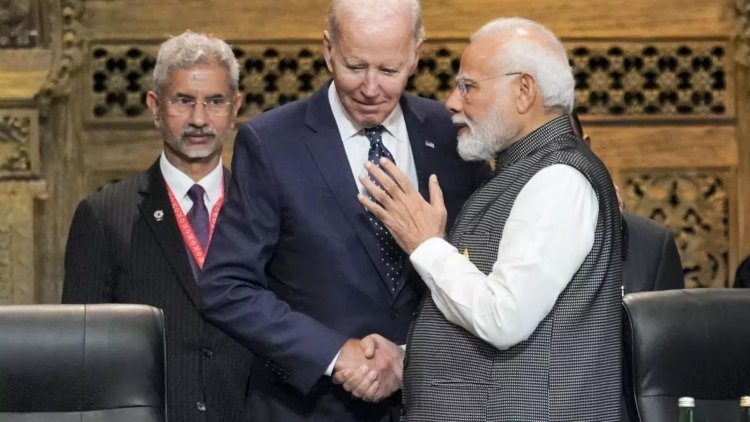India, US and NATO Plus
STORIES, ANALYSES, EXPERT VIEWS

The US has expressed its keenness for India to join the NATO alliance, ‘should India seek that’. The U.S. House Select Committee on the Strategic Competition between the United States and the Chinese Communist Party (CCP), in May 2023, recommended strengthening the ‘NATO-Plus’ framework by including India in the grouping. India’s External Affairs Minister S. Jaishankar had rejected this idea by saying that ‘NATO template does not apply to India’. Yet, writes Sakti Prasad Srichandan (Assistant Professor, Centre for European Studies, School of International Studies, Jawaharlal Nehru University) “on the eve of Prime Minister Narendra Modi’s visit to the U.S., in June, Senate India Caucus Co-Chair Mark Warner shared his plans to table a bill to bring India into the NATO Plus fold.”
NATO Plus: India remains a missing link
‘NATO plus’ refers to a security arrangement of NATO and the five treaty allies of the U.S. — Australia, New Zealand, Japan, Israel, and South Korea as members — to enhance ‘global defence cooperation’ and win the ‘strategic competition with the Chinese Communist Party'.
While NATO’s earlier target was the Soviet Union and now Russia, the focus of NATO Plus is clearly on containing China. Therefore, writes Srichandan “considering its disputes with China, India remains a missing link in the framework."
Advantages, disadvantages for India
In light of increasing regional security challenges, Srichandan argues “India joining the NATO Plus framework could provide it with a security umbrella, with protection and deterrence against potential threats. India could also gain access to advanced military technologies, intelligence-sharing platforms, and inter-operability with other member-states. This could potentially strengthen India’s defence capabilities and modernisation efforts.”
Srichandan assesses this in the larger context of India’s strategic autonomy.
Will annoy Russia and China: First, “getting into any NATO framework will annoy Russia and China. Apart from the robust strategic partnership, Russia has been useful to India in dealing with regional security challenges and, importantly, moderating the stance of China. Even though Russia is getting over-dependent on China, post the war in Ukraine, Moscow remains a valuable partner for India. Should it join, in one stroke, India’s solidified strategic partnership with Russia will crumble. Balancing these relationships and managing potential geopolitical consequences would be a significant challenge for India.”
Could prove counterproductive: Second, “while aligning with a U.S.-led alliance system may be tempting due to the threats posed by China, it could ultimately prove counterproductive and detrimental. Having a military framework will limit India’s freedom of action and prevent it from pursuing an independent policy towards China…..”
Jeopardise strategic autonomy: Third, “joining a NATO framework would require India to align its defence and security policies with the objectives and strategies of the alliance, thereby potentially undermining India’s autonomy….
For the time being therefore, concludes Srichandan “India’s posturing through the Quad (India, Japan, Australia and the U.S.; the Asian NATO as per China) looks more promising than the NATO Plus bait, though China remains an elephant in the room during its summits.”
















